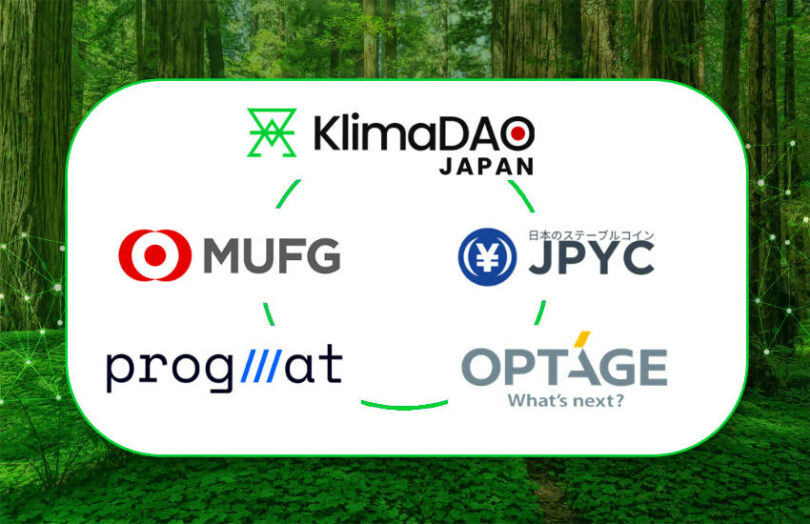A new exploratory project involves Japan’s biggest bank MUFG and KlimaDAO Japan, the organization known for its tokenized carbon credits. It will explore using the JPYC stablecoin issued on the Progmat blockchain platform to settle tokenized carbon credit transactions.
KlimADAO is multi-faceted and was initially known internationally for tokenizing carbon credits on public blockchains and making them available to individuals. The core functionality also includes the ability to retire credits.
Additionally, last year it globally launched a more enterprise-like marketplace, Carbonmark. While the backend of the solution uses blockchain (Polygon), tokenized carbon credits and smart contracts, the usability is more mainstream. For example, it accepts bank transfers to settle transactions and is integrated with SAP. The goal is to enable a low cost and transparent solution for corporates.
Turning to Japan, the government administers a national scheme of J-credits. The Tokyo Stock Exchange launched a secondary market for J-credits, but volumes are small, as is the voluntary carbon market in Japan.
KlimaDAO wants to fix this by launching a KlimaDAO Japan Market to make it easier for domestic companies to buy credits and use them. This will involve tokenizing J-credits, which it refers to as D-Carbons. While it will initially use bank payments for settlement, the aim is to use stablecoins or JPYC in particular.
JPYC stablecoin for settlement
JPYC has existed since 2021, before Japan’s stablecoin legislation came into force. Hence, it operates as a prepaid money instrument, like a prepaid card, which is a bit limiting. Under the new laws, it has two options. Firstly, it could get a license as a money transmitter. Alternatively, it could issue a trust-style stablecoin where a bank like MUFG is the trustee of the stablecoin’s reserves.
Hence, last year JPYC announced a tie up with MUFG, the main developer of Progmat Coin, the blockchain platform that supports stablecoins from multiple issuers. For the KlimaDAO stablecoin experiments, the stablecoin team is JPYC, MUFG and Progmat. Additionally, Kansai Electric subsidiary Optage is the integration partner.
Beyond 2024, the group envisages a third phase of development involving making Japanese D-Carbons available worldwide as part of the international Carbonmark. This will require an additional step of integrating foreign issued stablecoins with the marketplace.
The first proof of concept (without stablecoins) started in April. Phase 2 involving JPYC is expected to start by year’s end.
One notable point is that KlimaDAO Japan references using a permissionless blockchain, but doesn’t specify Polygon. There are a couple of homegrown blockchains in Japan, so it remains to be seen if one of these is used. Meanwhile, Progmat Coin uses R3’s Corda enterprise blockchain at its core, but is integrated with multiple public blockchains through collaborations with Datachain and its offshoot TOKI.







